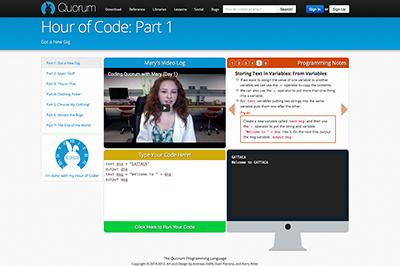Resources (Increasing the Participation of Students with Disabilities in K-12 Computing 2016)

The AccessCSForAll website contains
- information about project goals, objectives, activities, and project partners
- evidence-based practices that support project goals and objectives
- resources for students with disabilities
- educational materials for teachers and administration
AccessCSForAll maintains a searchable database of frequently asked questions, case studies, and promising practices related to how educators can fully include students with disabilities in computing activities. The Knowledge Base can be accessed by following the “Search Knowledge Base” link on the AccessCSForAll website.
The Knowledge Base is an excellent resource for ideas that can be implemented in computing programs in order to better serve students with disabilities. In particular, the promising practices articles serve to spread the word about practices that show evidence of improving the participation of people with disabilities in computing.
Examples of Knowledge Base questions include the following:
- What are specific computer applications that can assist students with learning disabilities?
- How can K-12 educators promote the use of accessible technology in schools?
- Are there any web-based tutorials on accessibility?
- How can principles of universal design be used to construct a computer lab?
- How can K-12 computing instructors get support working with students with disabilities?
Individuals and organizations are encouraged to propose questions and answers, case studies, and promising practices. Contributions and suggestions can be sent to accesscsforall@uw.edu.
For more information on AccessCSForAll, universal design, and accessible computing education, review the following websites, videos, and brochures.
- To find more information on universal design in education, visit the Center for Universal Design website.
- To learn more about and get involved with AccessCSForAll, visit the AccessCSForAll website.
- To discover ways to encourage students with disabilities to pursue computing and how to create an accessible inclusive environment for them, view AccessCSForAll videos.
- To read more discussions and presentations on including students with disabilities in ECS and CSP courses, read Increasing the Participation of Students with Disabilities in Exploring Computer Science and Computer Science Principles Courses.
- To learn more about accessible programming, explore Quorum.
- To learn more about and to get involved with a similar project, visit AccessComputing.
- To read profiles of computing professionals and students with disabilities, visit the Choose Computing profiles.